

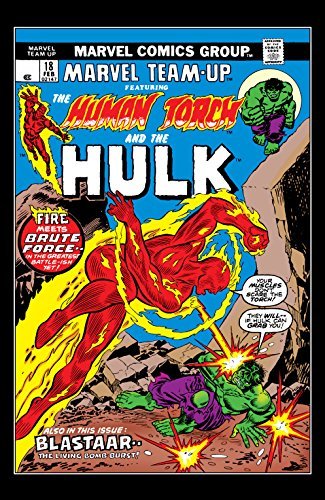
Books in series

Marvel Masterworks
The X-Men, Vol. 7
2008

Marvel-Verse
Captain America
2020

Marvel Team-Up #18
1974
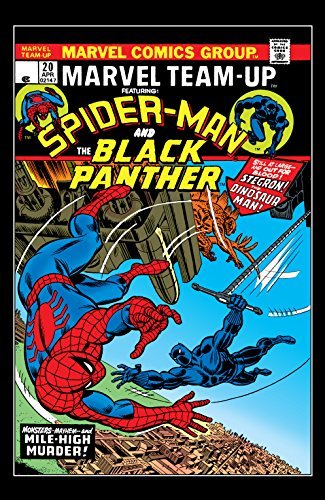
Marvel Team-Up #20
2018
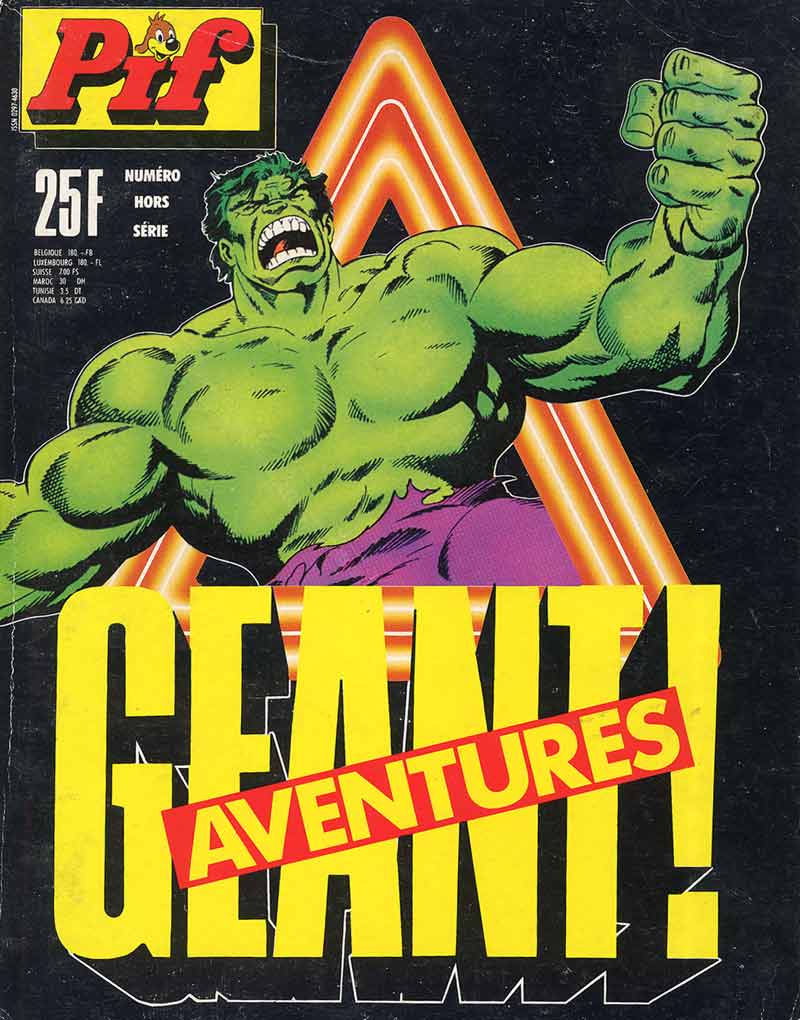
Pif géant aventures n° 8
1991
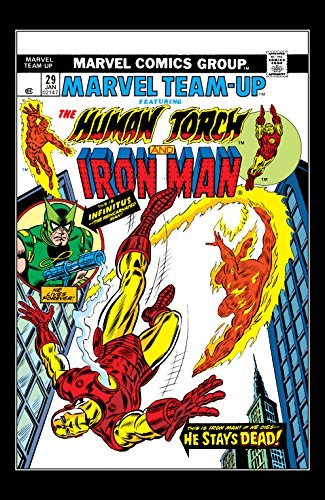
Marvel Team-Up #29
2018
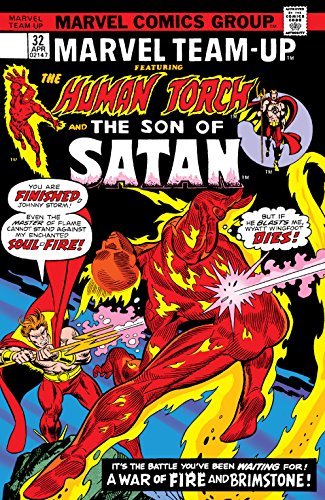
Marvel Team-Up #32
2016
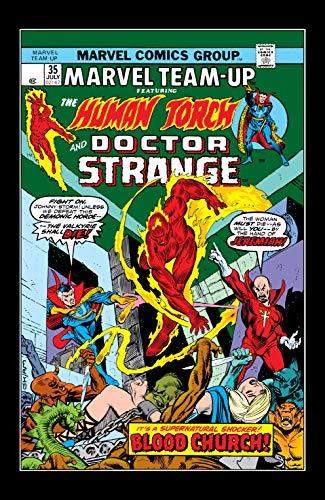
Marvel Team-Up #35
2019

Deathlok the Demolisher
The Complete Collection
2009
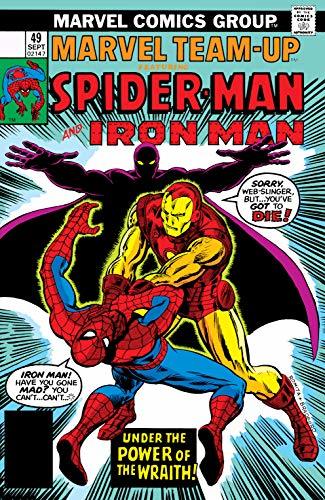
Marvel Team-Up #49
2018
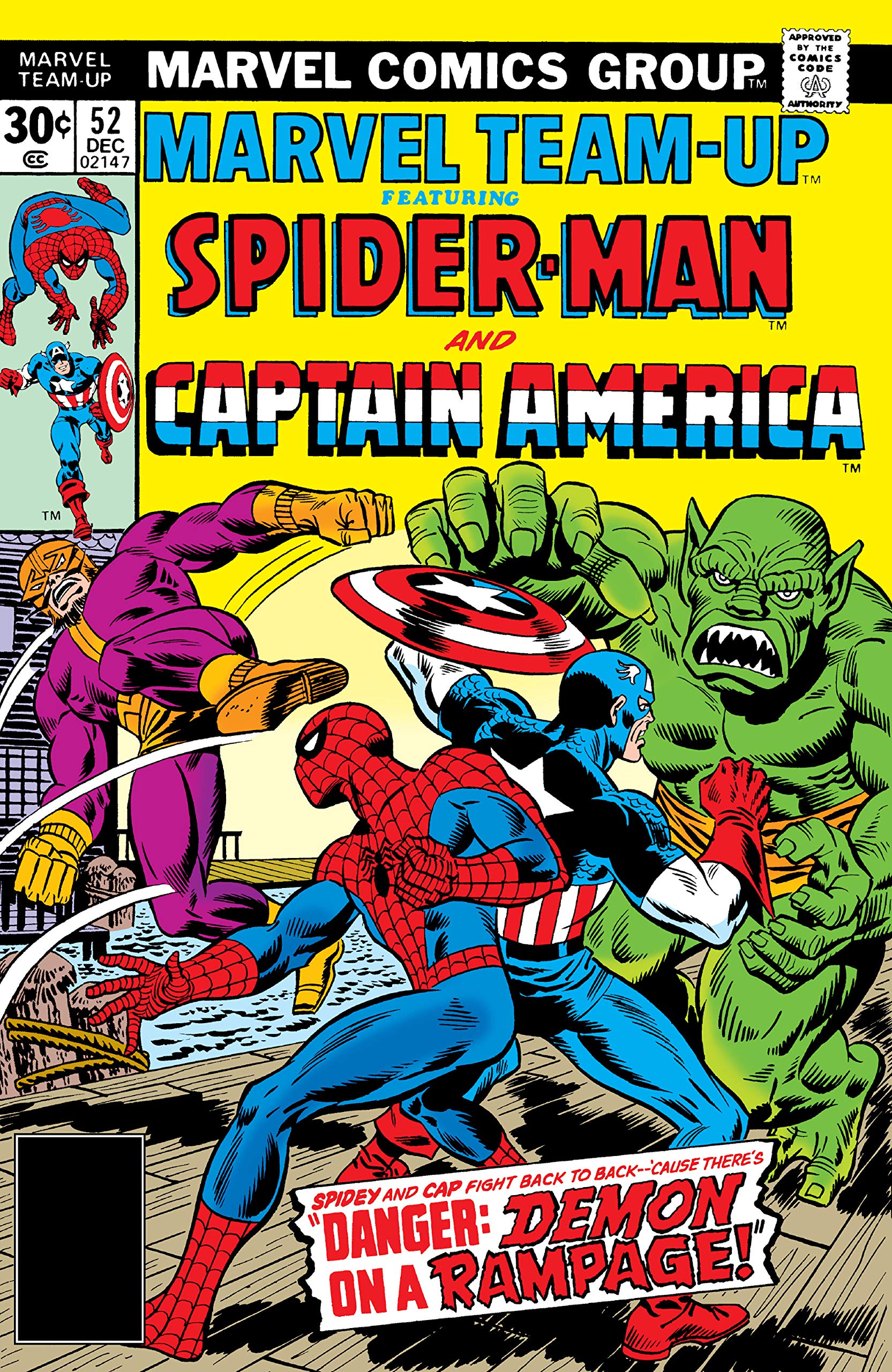
Marvel Team-Up #52
1972

Essential Warlock, Vol. 1
1977
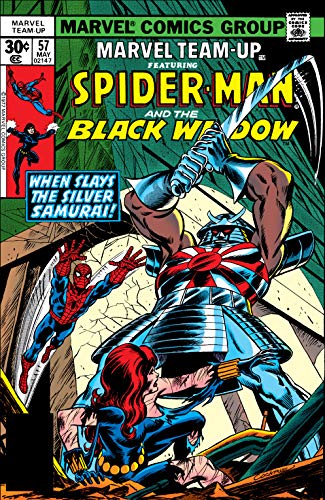
Marvel Team-Up #57
2020
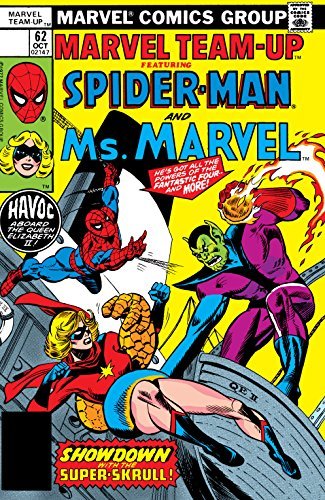
Marvel Team-Up #62
1977
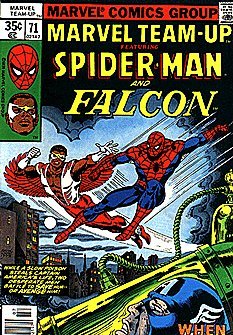
Marvel Team-Up (1972 series) #71
1972

Mighty Marvel Team-Up Thrillers
1983
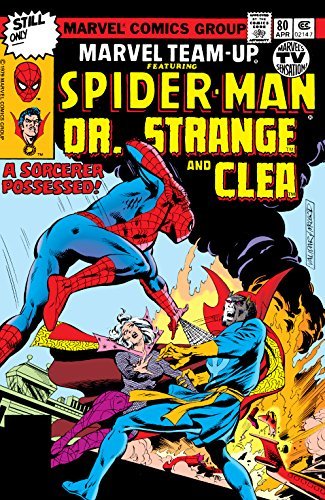
Marvel Team-Up #80
2000
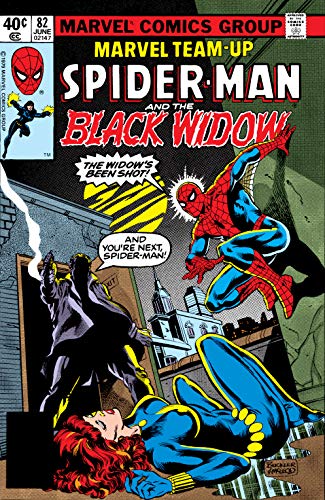
Marvel Team-Up #82
1970
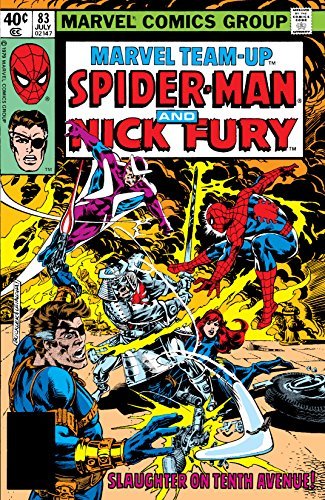
Marvel Team-Up #83
1979
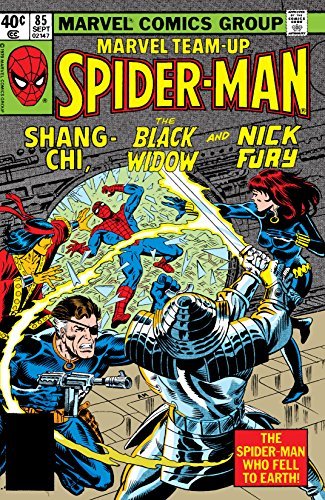
Marvel Team-Up #85
2016
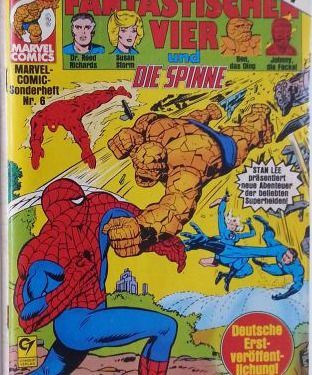
Marvel-Comic Sonderheft #6 - Die Fantastischen Vier Und Die Spinne
1981

Ghost Rider Team-up
2007

Avengers
Hawkeye
1988
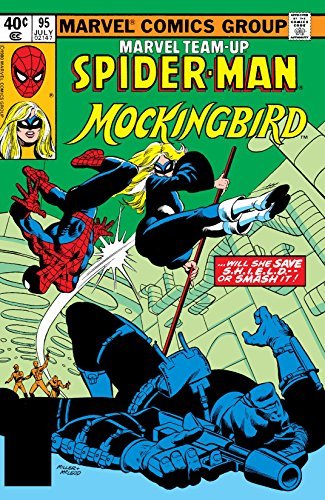
Marvel Team-Up #95
1980
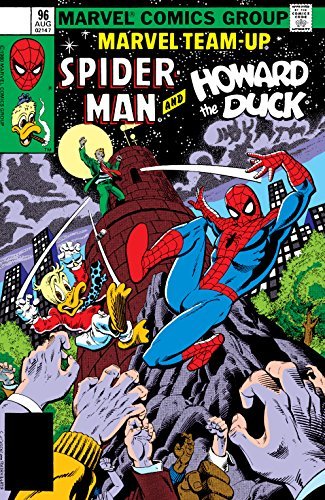
Marvel Team-Up #96
2017
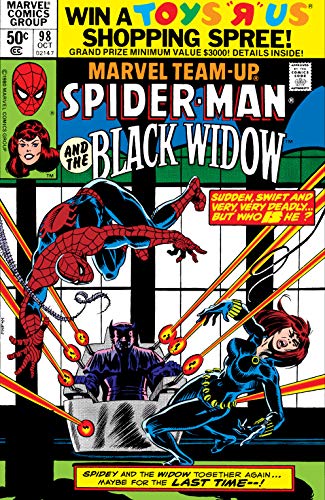
Marvel Team-Up #98
1980

Homem-Aranha
Integral Frank Miller
1994
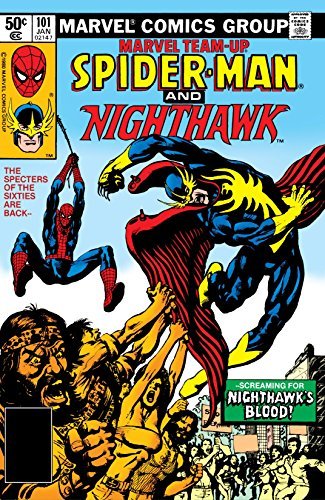
Marvel Team-Up #101
1981

Ant-Man
Scott Lang
2015
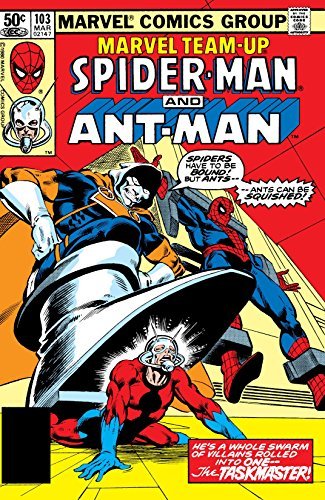
Marvel Team-Up #103
1981

Spider-Man Annual 1986
1973
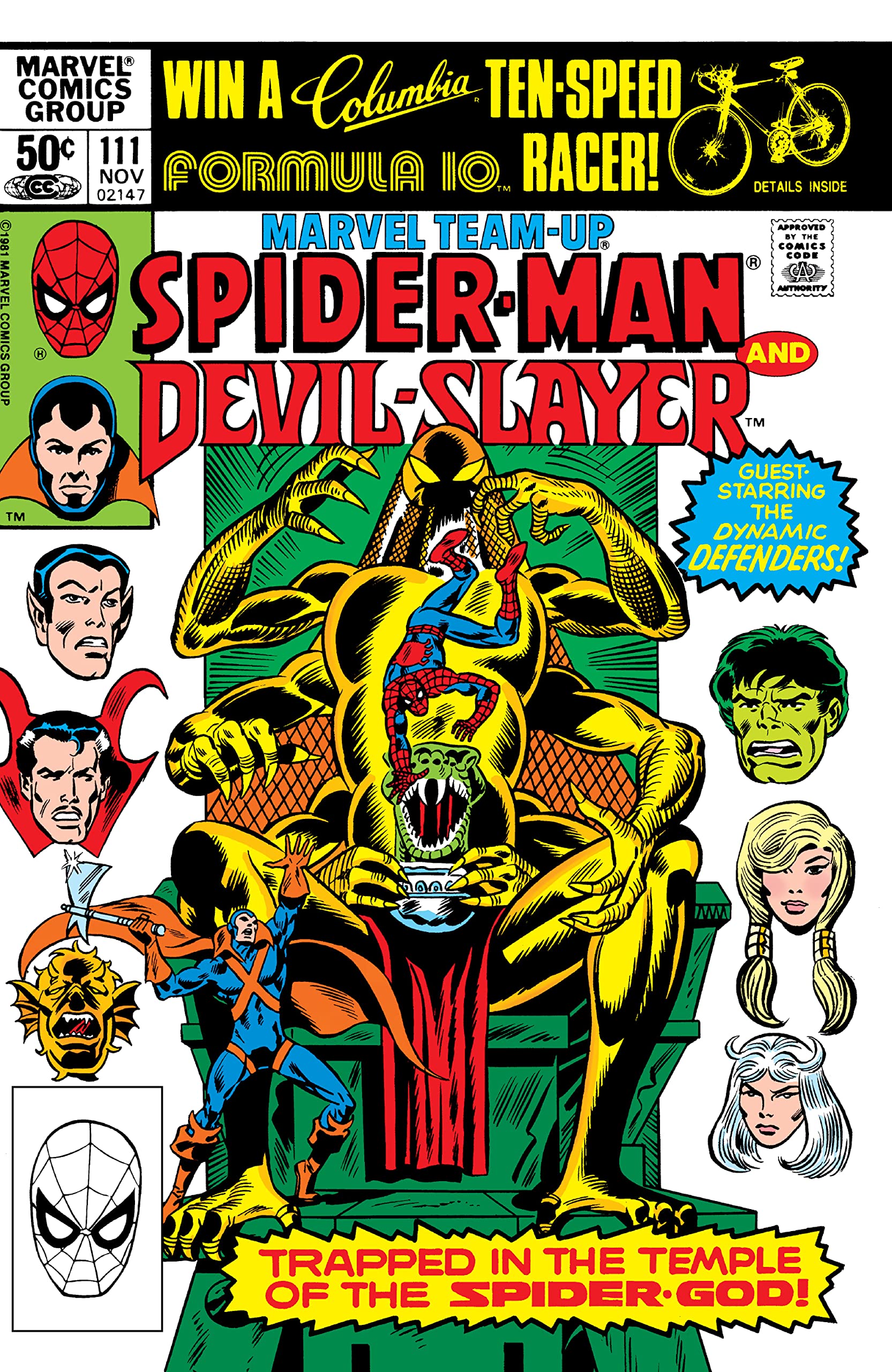
Marvel Team-Up #111
1981
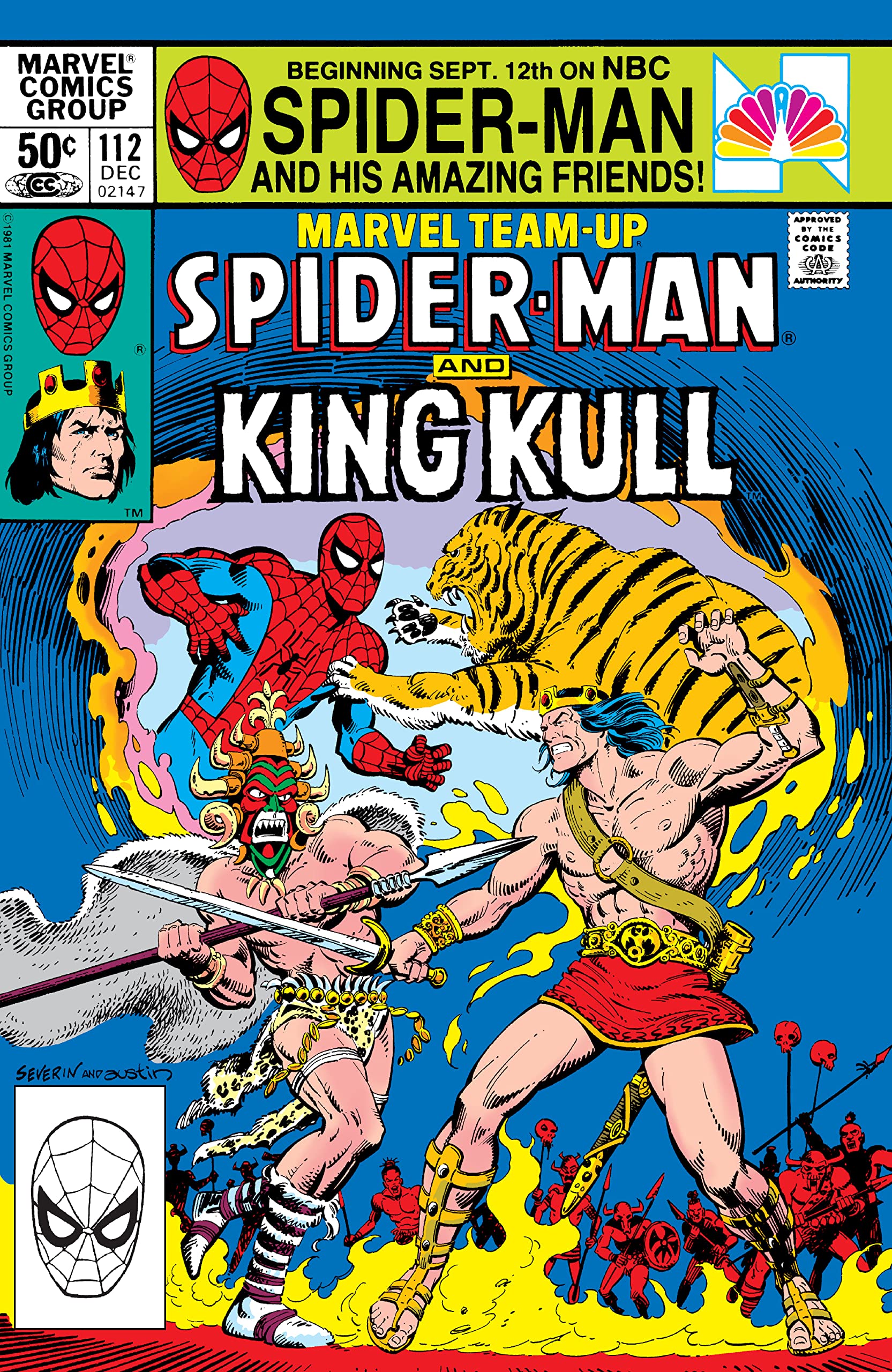
Marvel Team-Up #112
2021
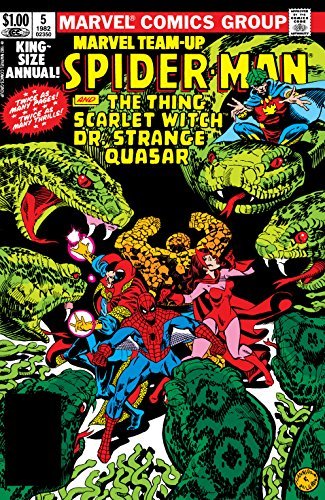
Marvel Team-Up Annual #5
1982
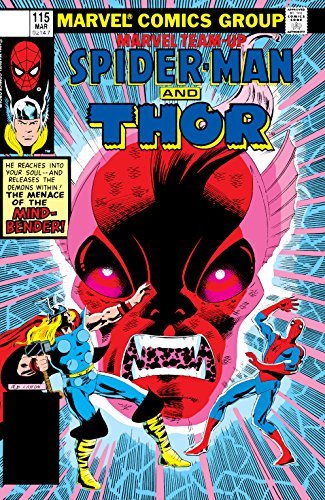
Marvel Team-Up #115
2018
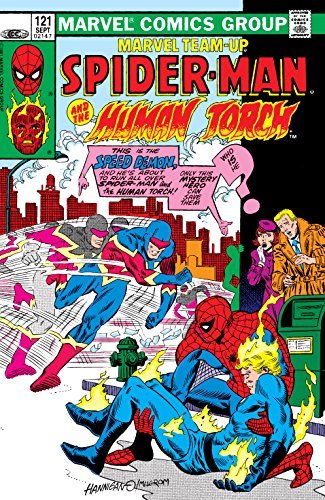
Marvel Team-Up #121
2018
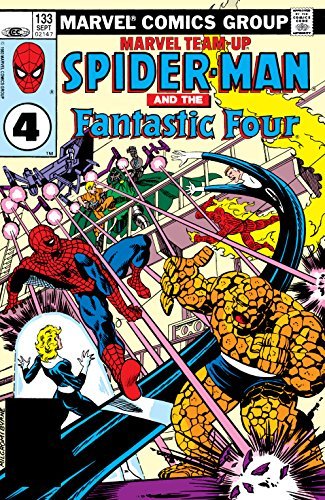
Marvel Team-Up #133
1983
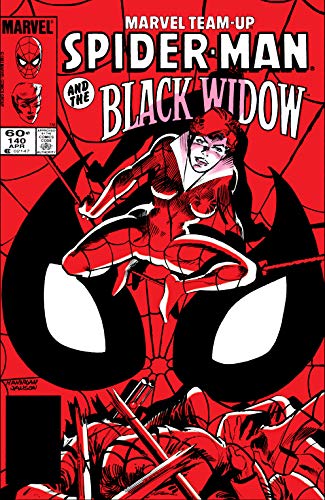
Marvel Team-Up #140
1972
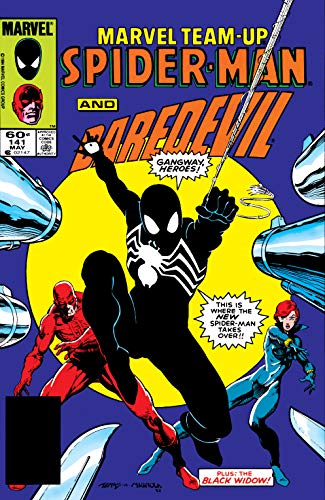
Marvel Team-Up #141
1984
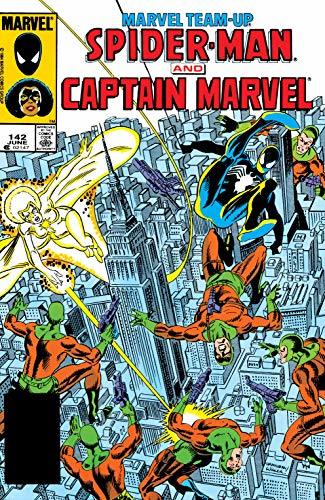
Marvel Team-Up #142
1984
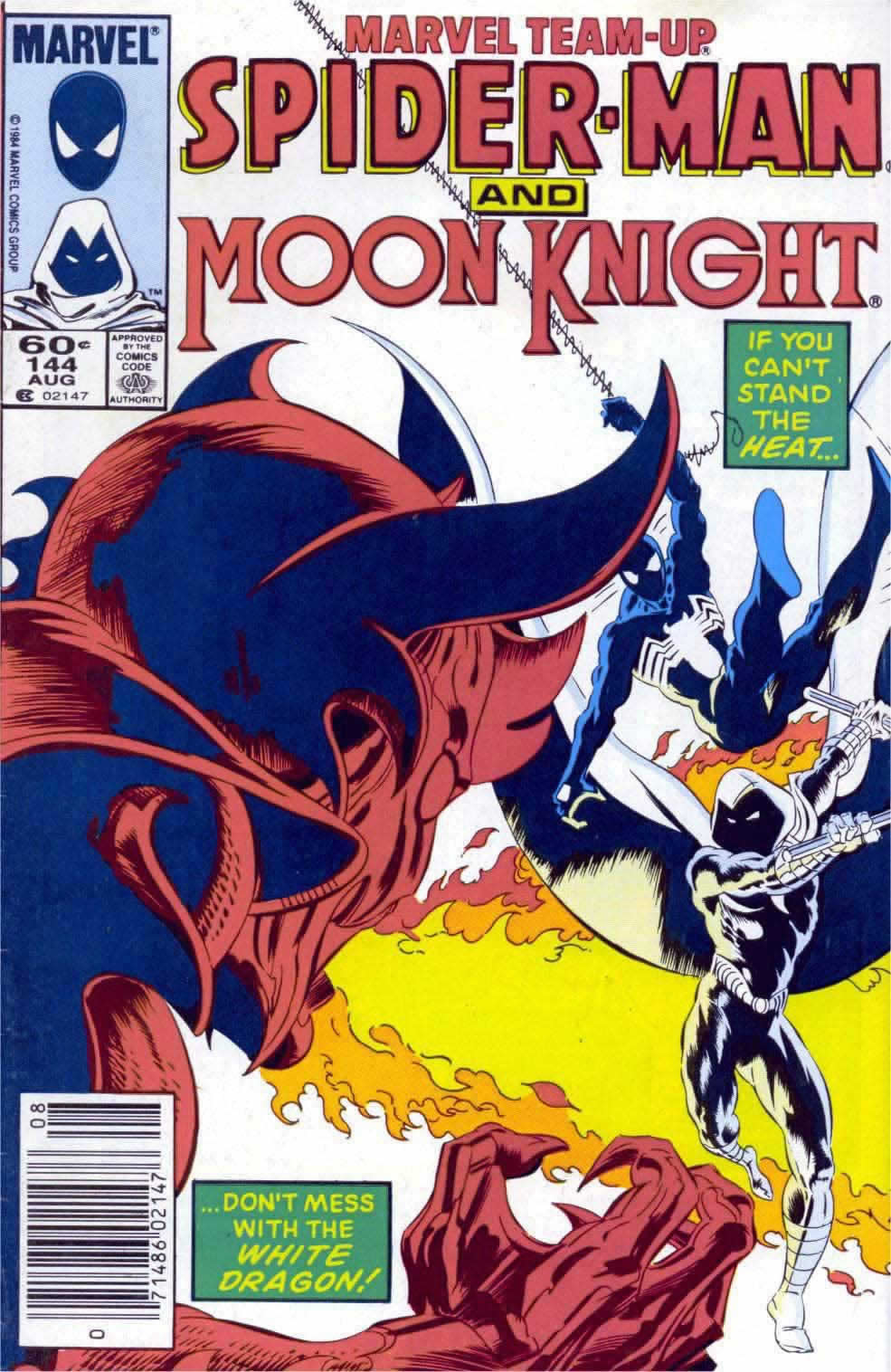
Marvel Team-Up #144
1984
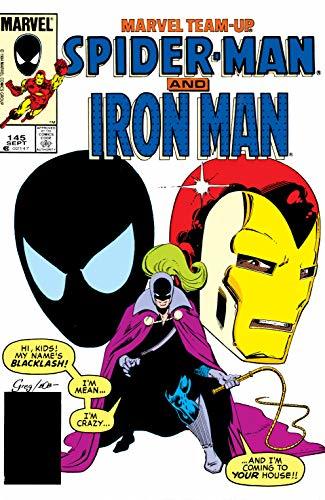
Marvel Team-Up #145
2018
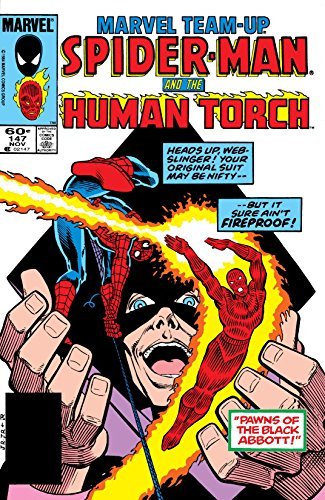
Marvel Team-Up #147
2015
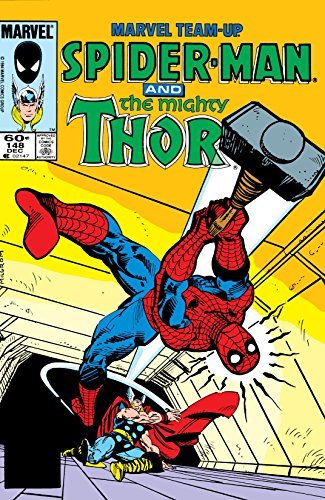
Marvel Team-Up #148
2015
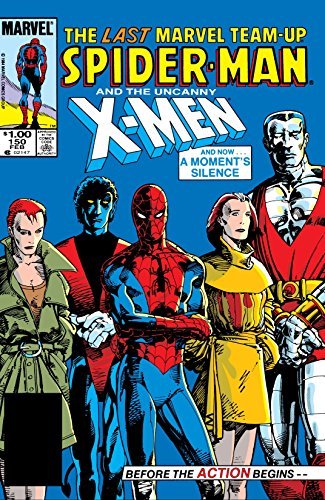
Marvel Team-Up #150
2000

Marvel Masterworks
Marvel Team-Up, Vol. 1
2010

Essential Marvel Team-Up, Vol. 1
1974

Essential Marvel Horror, Vol. 1
1979

The Monster of Frankenstein
2015

X-Men Epic Collection, Vol. 5
Second Genesis
2017

The Uncanny X-Men Omnibus, Vol. 2
1982

Marvel-Verse
Wanda and Vision
2020
Authors

Tony Isabella is an American comic book writer, editor, artist and critic, known as the creator and writer of Marvel Comics' Black Goliath; DC Comics' first major African-American superhero, Black Lightning; and as a columnist and critic for the Comics Buyer's Guide. Contents

Librarian note: There is more than one author in the GoodReads database with this name John Lindley Byrne is a British-born Canadian-American author and artist of comic books. Since the mid-1970s, Byrne has worked on nearly every major American superhero. Byrne's better-known work has been on Marvel Comics' X-Men and Fantastic Four and the 1986 relaunch of DC Comics’ Superman franchise. Coming into the comics profession exclusively as a penciler, Byrne began co-plotting the X-Men comics during his tenure on them, and launched his writing career in earnest with Fantastic Four (where he also started inking his own pencils). During the 1990s he produced a number of creator-owned works, including Next Men and Danger Unlimited. He also wrote the first issues of Mike Mignola's Hellboy series and produced a number of Star Trek comics for IDW Publishing.


Len Wein was an American comic book writer and editor best known for co-creating DC Comics' Swamp Thing and Marvel Comics' Wolverine, and for helping revive the Marvel superhero team the X-Men (including the co-creation of Nightcrawler, Storm, and Colossus). Additionally, he was the editor for writer Alan Moore and illustrator Dave Gibbons' influential DC miniseries Watchmen. Wein was inducted into the Will Eisner Comic Book Hall of Fame in 2008.


For the Karate Kid actor, click here: Ralph Macchio Ralph Macchio is an American comic book editor and writer, who has held many positions at Marvel Comics, including executive editor. Macchio is commonly associated with Daredevil, the Spider-Man line of comics and the popular Ultimate Marvel line. In Macchio's words, he "made probably the longest run on Daredevil of anyone." Macchio is not related to the actor Ralph Macchio, but is nicknamed "Karate Kid" after that actor's famous role.
Librarian note: There is more than one author in the GoodReads database with this name This profile may contain books from multiple authors of this name

Steve Gerber graduated from the University of Missouri with a degree in communications and took a job in advertising. To keep himself sane, he wrote bizarre short stories such as "Elves Against Hitler," "Conversion in a Terminal Subway," and "...And the Birds Hummed Dirges!" He noticed acquaintance Roy Thomas working at Marvel, and Thomas sent him Marvel's standard writing test, dialoguing Daredevil art. He was soon made a regular on Daredevil and Sub-Mariner, and the newly created Man-Thing, the latter of which pegged him as having a strong personal style—intellectual, introspective, and literary. In one issue, he introduced an anthropomorphic duck into a horror fantasy, because he wanted something weird and incongruous, and Thomas made the character, named for Gerber's childhood friend Howard, fall to his apparent death in the following issue. Fans were outraged, and the character was revived in a new and deeply personal series. Gerber said in interview that the joke of Howard the Duck is that "there is no joke." The series was existential and dealt with the necessities of life, such as finding employment to pay the rent. Such unusual fare for comicbooks also informed his writing on The Defenders. Other works included Morbius, the Lving Vampire, The Son of Satan, Tales of the Zombie, The Living Mummy, Marvel Two-in-One, Guardians of the Galaxy, Shanna the She-Devil, and Crazy Magazine for Marvel, and Mister Miracle, Metal Men, The Phantom Zone , and The Immortal Doctor Fate for DC. Gerber eventually lost a lawsuit for control of Howard the Duck when he was defending artist Gene Colan's claim of delayed paychecks for the series, which was less important to him personally because he had a staff job and Colan did not. He left comics for animation in the early 1980s, working mainly with Ruby-Spears, creating Thundarr the Barbarian with Alex Toth and Jack Kirby and episodes of The Puppy's Further Adventures, and Marvel Productions, where he was story editor on multiple Marvel series including Dungeons & Dragons, G.I. Joe, and The Transformers. He continued to dabble in comics, mainly for Eclipse, including the graphic novel Stewart the Rat, the two-part horror story "Role Model: Caring, Sharing, and Helping Others," and the seven-issue Destroyer Duck with Jack Kirby, which began as a fundraiser for Gerber's lawsuit. In the early 1990s, he returned to Marvel with Foolkiller, a ten-issue limited series featuring a new version of a villain he had used in The Man-Thing and Omega the Unknown, who communicated with a previous version of the character through internet bulletin boards. An early internet adopter himself, he wrote two chapters of BBSs for Dummies with Beth Woods Slick, with whom he also wrote the Star Trek: The Next Generation episode, "Contagion." During this period, he also wrote The Sensational She-Hulk and Cloak and Dagger for Marvel, Cybernary and WildC.A.T.s for Image, and Sludge and Exiles for the writer-driven Malibu Ultraverse, and Nevada for DC's mature readers Vertigo line. In 2002, he returned to the Howard the Duck character for Marvel's mature readers MAX line, and for DC created Hard Time with Mary Skrenes, with whom he had co-created the cult hit Omega the Unknown for Marvel. Their ending for Omega the Unknown remains a secret that Skrenes plans to take to the grave if Marvel refuses to publish it. Suffering from idiopathic pulmonary fibrosis ("idiopathic" meaning of unknown origin despite having been a heavy smoker much of his life), he was on a waiting list for a double lung transplant. His final work was the Doctor Fate story arc, "More Pain Comics," for DC Comics'
David Anthony Kraft was an American comic book writer, publisher, and critic. (source: Wikipedia)

Roy Thomas was the FIRST Editor-in-Chief at Marvel—After Stan Lee stepped down from the position. Roy is a longtime comic book writer and editor. Thomas has written comics for Archie, Charlton, DC, Heroic Publishing, Marvel, and Topps over the years. Thomas currently edits the fanzine Alter Ego for Twomorrow's Publishing. He was Editor for Marvel comics from 1972-1974. He wrote for several titles at Marvel, such as Avengers, Thor, Invaders, Fantastic Four, X-Men, and notably Conan the Barbarian. Thomas is also known for his championing of Golden Age comic-book heroes—particularly the 1940s superhero team the Justice Society of America—and for lengthy writing stints on Marvel's X-Men and Avengers, and DC Comics' All-Star Squadron, among other titles. Also a legendary creator. Creations include Wolverine, Carol Danvers, Ghost Rider, Vision, Iron Fist, Luke Cage, Valkyrie, Morbius, Doc Samson, and Ultron. Roy has also worked for Archie, Charlton, and DC among others over the years.

Stan Lee (born Stanley Martin Lieber) was an American writer, editor, creator of comic book superheroes, and the former president and chairman of Marvel Comics. With several artist co-creators, most notably Jack Kirby and Steve Ditko, he co-created Spider-Man, the Fantastic Four, Thor as a superhero, the X-Men, Iron Man, the Hulk, Daredevil, the Silver Surfer, Dr. Strange, Ant-Man and the Wasp, Scarlet Witch, The Inhumans, and many other characters, introducing complex, naturalistic characters and a thoroughly shared universe into superhero comic books. He subsequently led the expansion of Marvel Comics from a small division of a publishing house to a large multimedia corporation.

Librarian note: There is more than one author in the GoodReads database with this name George R. Evans was an American cartoonist and illustrator who worked in both comic books and comic strips. His lifelong fascination with airplanes and the pioneers of early aviation was a constant theme in his art and stories. https://en.wikipedia.org/wiki/George_...


Louise Simonson (born Mary Louise Alexander and formerly credited as Louise Jones, when married to artist Jeff Jones) is an American comic book writer and editor. She is best known for her work on comic book titles such as Power Pack, X-Factor, New Mutants, Superman, and Steel. She is sometimes referred to by the nickname "Weezie". Since 1980 she is married to comic book writer and artist Walter Simonson

See also John Harkness. Steve Englehart went to Wesleyan University in Middletown, Connecticut. After a stint in the Army, he moved to New York and began to write for Marvel Comics. That led to long runs on Captain America, The Hulk, The Avengers, Dr. Strange, and a dozen other titles. Midway through that period he moved to California (where he remains), and met and married his wife Terry. He was finally hired away from Marvel by DC Comics, to be their lead writer and revamp their core characters (Superman, Batman, Wonder Woman, Flash, and Green Lantern). He did, but he also wrote a solo Batman series (immediately dubbed the "definitive" version) that later became Warner Brothers' first Batman film (the good one). After that he left comics for a time, traveled in Europe for a year, wrote a novel (The Point Man™), and came back to design video games for Atari (E.T., Garfield). But he still liked comics, so he created Coyote™, which within its first year was rated one of America's ten best series. Other projects he owned (Scorpio Rose™, The Djinn™) were mixed with company series (Green Lantern [with Joe Staton], Silver Surfer, Fantastic Four). Meanwhile, he continued his game design for Activision, Electronic Arts, Sega, and Brøderbund. And once he and Terry had their two sons, Alex and Eric, he naturally told them stories. Rustle's Christmas Adventure was first devised for them. He went on to add a run of mid-grade books to his bibliography, including the DNAgers™ adventure series, and Countdown to Flight, a biography of the Wright brothers selected by NASA as the basis for their school curriculum on the invention of the airplane. In 1992 Steve was asked to co-create a comics pantheon called the Ultraverse. One of his contributions, The Night Man, became not only a successful comics series, but also a television show. That led to more Hollywood work, including animated series such as Street Fighter, GI Joe, and Team Atlantis for Disney.
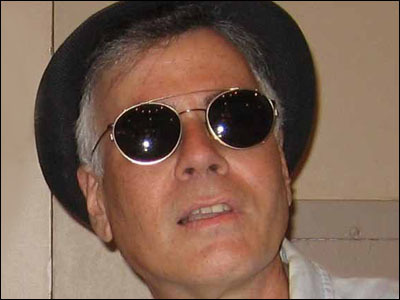


Doug Moench, is an American comic book writer notable for his Batman work and as the creator of Black Mask, Moon Knight and Deathlok. Moench has worked for DC Comics, Marvel Comics, Dark Horse Comics and many other smaller companies; he has written hundreds of issues of many different comics, and created dozens of characters, such as Moon Knight. In 1973, Moench became the de facto lead writer for the Marvel black-and-white magazine imprint Curtis Magazines. He contributed to the entire runs of Planet of the Apes, Rampaging Hulk (continuing on the title when it changed its name to The Hulk!) and Doc Savage, while also serving as a regular scribe for virtually every other Curtis title during the course of the imprint's existence. Moench is perhaps best known for his work on Batman, whose title he wrote from 1983–1986 and then again from 1992–1998. (He also wrote the companion title Detective Comics from 1983–1986.) Moench is a frequent and longtime collaborator with comics artist Paul Gulacy. The pair are probably best known for their work on Shang-Chi: Master of Kung Fu, which they worked on together from 1974–1977. They also co-created Six from Sirius, Slash Maraud, and S.C.I. Spy, and have worked together on comics projects featuring Batman, Conan the Barbarian and James Bond. Moench has frequently been paired with the artist and inker team of Kelley Jones and John Beatty on several Elseworlds Graphic Novels and a long run of the monthly Batman comic.
Librarian note: There is more than one author in the GoodReads database with this name
Brian Clevinger is best known as the author of the most popular sprite webcomic, and one of the most popular webcomics overall, 8-Bit Theater. He is also the author of the self-published novel Nuklear Age. Clevinger has recently received attention for his Eisner-nominated print comic Atomic Robo. Claiming that his "favorite comics are the ones where the jokes are on the reader," Clevinger is an expert in using anti-climax, interface alterations, and the occasional false ending to play with the reader's expectations. It is a testament to both his sense of humor and his writing skills that these "jokes on the reader" are usually beloved by his fanbase.

Chris Claremont is a writer of American comic books, best known for his 16-year (1975-1991) stint on Uncanny X-Men, during which the series became one of the comic book industry's most successful properties. Claremont has written many stories for other publishers including the Star Trek Debt of Honor graphic novel, his creator-owned Sovereign Seven for DC Comics and Aliens vs Predator for Dark Horse Comics. He also wrote a few issues of the series WildC.A.T.s (volume 1, issues #10-13) at Image Comics, which introduced his creator-owned character, Huntsman. Outside of comics, Claremont co-wrote the Chronicles of the Shadow War trilogy, Shadow Moon (1995), Shadow Dawn (1996), and Shadow Star (1999), with George Lucas. This trilogy continues the story of Elora Danan from the movie Willow. In the 1980s, he also wrote a science fiction trilogy about female starship pilot Nicole Shea, consisting of First Flight (1987), Grounded! (1991), and Sundowner (1994). Claremont was also a contributor to the Wild Cards anthology series.




